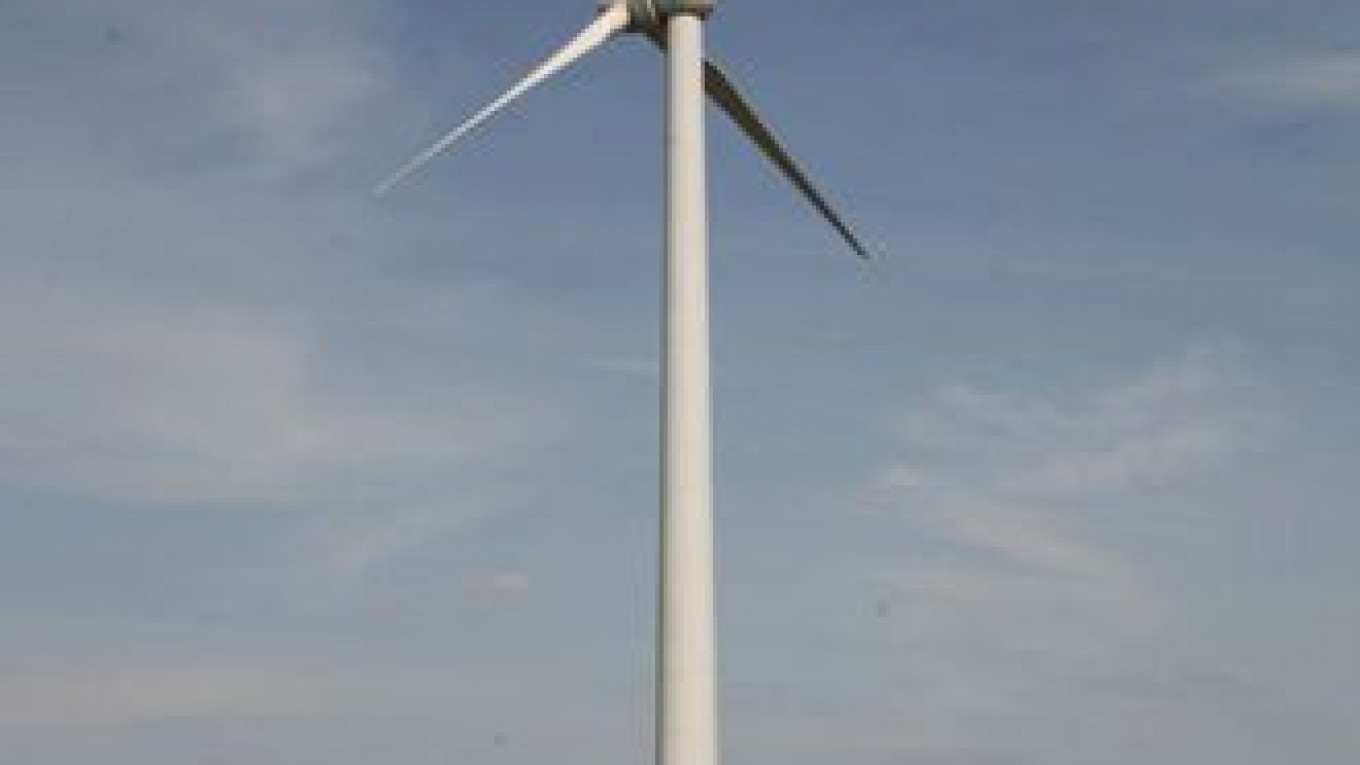Russia aims to more than quadruple renewable power generation by 2020 and has formidable resources to do so, but its hydrocarbon lobby is stonewalling progress and is unlikely to back down in the foreseeable future.
"There is total paranoia concerning renewables here," said Alexei Zhikarev, who heads the Russia renewable energy program for the World Bank's International Finance Corporation.
"Lots of organizations are spreading ideas with cloak-and-dagger overtones that America and Europe are trying to use their technologies to replace hydrocarbons to put Russia at risk," he said during an energy conference in Moscow last week.
Russia's official energy policy calls for 4.5 percent of the country's power to come from renewable sources by the end of this decade, and green energy experts say its expansive coastline, forest cover and favorable topography should mean that meeting this goal would not be a problem.
"The potential for solar and wind are not too high, but Russia could easily become a world leader in biomass, especially from pulp and wood chips. There's a large forest industry here generating a lot of waste products," said Alexei Kokorin, head of climate and energy at the WWF Russia.
Tidal power, generated from the ebb and flow of waves, is another niche renewable area that Russia could develop, especially in coastal regions in the north, he said. But for Russia to become a player in generating clean energy and supplying the technology, the government must start thinking beyond oil.
"Meeting the 4.5 percent target will be tough going because government agencies don't really see the point. Russia is a net exporter of oil and gas, it doesn't need to create jobs using renewables like in the U.S.," Kokorin said. "The only stimulus for them is, well, that it's an order."
Excluding hydroelectricity, Russia now generates less than 1 percent of its power from renewables, compared with 4.5 percent in the United States and 7 percent in Europe, which is aiming for 20 percent by the end of this decade.
Vasily Zubakin, deputy head of energy for LUKoil, said efforts to develop renewables are stymied by a powerful hydrocarbon lobby, widespread belief that renewables are inefficient and mistrust of new technology.
Russia is the world's largest crude oil exporter and the largest holder of gas reserves. Revenues from the oil and gas industries make up more than 40 percent of the federal budget.
"[The oil and gas majors] don't want to give up a piece of the pie, but everyone forgets that we are only talking about 4.5 percent of electricity [from renewables] by 2020, not 20 percent like in Europe," said Zhikarev of the IFC.
"I will tell you very simply why there hasn't been progress on renewables in Russia: There aren't any lobbyists close to the top authorities," said Valery Borovyk, chairman of Alliance, a Ukrainian renewable energy company.
And while global oil majors such as BP and ExxonMobil boast of innovation in renewable projects, Russian oil companies tend to ignore it entirely. "In Russia, people do not demand ecological responsibility. They don't care," said Konstantin Cherepanov, UBS oil analyst.
"Western companies do it for public relations, of course. But they do it to keep their hand on the pulse. Renewables could develop into a competitive source of energy in the future, so they want to keep up with them."
Energy Minister Sergei Shmatko has said that while renewable energy is promising, it is not relevant in Russia and will not be applied on a large scale.
Nevertheless, wind power generation has found favor in regions where local budgets are strained by subsidies on power generation for consumers who live in very remote areas.
Kalmykia, a small agricultural region in the south, receives 60 percent of its power from wind turbines and plans to raise this share significantly over the next few years.
Andrei Kulakov, a partner in Russian wind project planning company Aktiviti, said it built wind farms in Russia's Pacific Kamchatka region and is helping northern regions begin wind monitoring, the first stage in a wind power project.
"We are consulting the regional governments of Irkutsk, Altai, Sakhalin, Yamal-Nenets, Yakutia and Arkhangelsk because in some areas in these regions they have to fly diesel in by helicopter. Fossil-fired power can cost as much as 100 rubles ($3.50) per kilowatt hour, 10 times the national average," he added.
Russia spends $40 billion each year to keep electricity and heating affordable for industrial and residential end-users, according to the International Energy Agency.
"We keep hearing from the Energy Ministry and others that renewables are uncompetitive, that they require subsidies and special tariffs to be viable. This is true, but we already spend more than any other country in subsidies for fossil fuel power generation, so I don't understand this logic," Kulakov said.
A Message from The Moscow Times:
Dear readers,
We are facing unprecedented challenges. Russia's Prosecutor General's Office has designated The Moscow Times as an "undesirable" organization, criminalizing our work and putting our staff at risk of prosecution. This follows our earlier unjust labeling as a "foreign agent."
These actions are direct attempts to silence independent journalism in Russia. The authorities claim our work "discredits the decisions of the Russian leadership." We see things differently: we strive to provide accurate, unbiased reporting on Russia.
We, the journalists of The Moscow Times, refuse to be silenced. But to continue our work, we need your help.
Your support, no matter how small, makes a world of difference. If you can, please support us monthly starting from just $2. It's quick to set up, and every contribution makes a significant impact.
By supporting The Moscow Times, you're defending open, independent journalism in the face of repression. Thank you for standing with us.
Remind me later.






